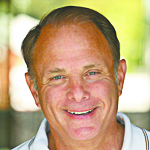There is new information on the science of napping. It’s a really big snooze. Once again, research confirms the benefits of the daily siesta. A year or so back, when I had lost interest in this daily respite, I headed straight to the doctor, concerned that there was something seriously wrong with me. I told him I was often awake 10 or 12 hours in a row.
“This is very troubling, Dick,” said Dr. Coss. “So, you don’t fall asleep at night?”
“No, I sleep great at night. It’s all day that I can’t sleep.”
I started successfully napping again and I was beginning to get even better at it than before – but now, I’ve had another setback. (Geesh, I used to be able to accomplish it with my eyes closed.) I should never have read this new scientific study. It’s very technical and there’s so much to think about that it’s keeping me up all day.
The study begins with this observation: “The kind of nap you take depends on the time you have at your disposal.” Well, they certainly know me, because it was just last week after clearing the dinner dishes, I actually fell asleep standing up next to the sink while running the disposal. My wife compared the disposal’s sound to my snoring and decided it was a toss-up which of us she would rather sleep next to.
The researchers distinguish between three types of naps:
The Habitual Nap: This is a nap you take whether you are tired or not. Oh, it’s 2 p.m.? Okay, time to lie down! In preschool, I rolled around on the floor for 90 minutes, itching to get back to the jungle gym. If I knew then that I had been in training to be a senior citizen, I might have been more cooperative.
The Planned Nap: You’re not necessarily tired, but you are going to a play that night with your spouse and you don’t want to snore and drool through the entire second act.
The Emergency Nap: You are driving to Chicago on I-65. You’ve already had three tall cups of dark roast Starbucks and jammed a ball-point pen into your thigh, but you are still nodding off. Scientists say emergency naps are taken out of “bleary-eyed, foggy-headed necessity.” Personally, I believe in a little more pre-planning. That’s why right now, I am already preparing to take a nap … tomorrow.
Nap length is also an important issue. The quickest nap is the Ultra Short Sleep Episode. This “episode” lasts only six minutes but apparently it helps your short-term memory, which really doesn’t explain why when you wake up, the first thing you say is: “Where am I?” My brother is a big fan of the Ultra Short Nap, but his clients keep waking him up, screaming from the back seat of his taxi.
It’s 2 p.m. and Mary Ellen is in the bedroom with the door closed. She denies that she ever naps. But I must say, right now she is doing a pretty good impersonation of me snoring.








